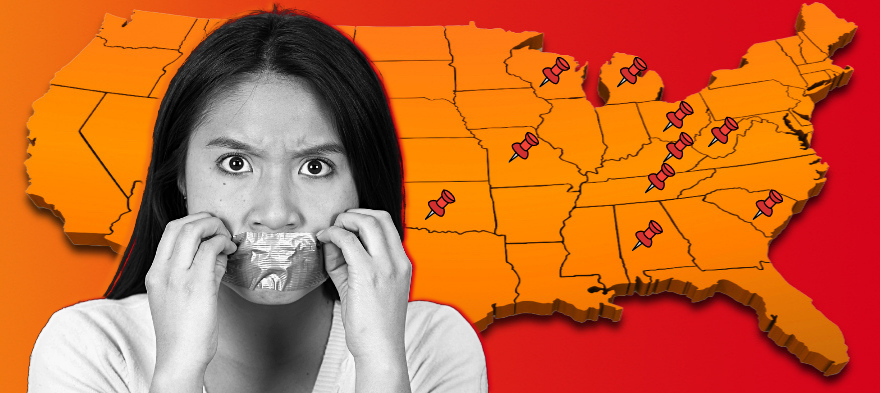
Last year, the obscure legal term “critical race theory” exploded into public consciousness, just months after conservative activist Christopher Rufo and Donald Trump began using the phrase as shorthand to criticize diversity training in federal workplaces. Their effort to silence conversations about race, gender and the truth about U.S. history gained huge momentum in 2021.
State legislatures jumped on the bandwagon. Between January and September, legislators in 24 states sponsored 54 bills banning or limiting discussion of racism and/or sexism. As PEN America noted in their recent report,
These bills appear designed to chill academic and educational discussions and impose government dictates on teaching and learning. In short: They are educational gag orders.
At least 11 of them became law in 2021.
And, more are likely on the way. [pullquote]In 2022, the number of gag orders limiting classroom discussion of race, gender and U.S. history may well increase.[/pullquote] Many legislators have already prefiled bills to muzzle these discussions in K-12 and college classrooms. Though some of the bills include language that allows for “impartial” discussion of these topics, lack of clarity around what would be considered impartial discussion of race, gender, and history versus compelling students to assent to particular ideas related to those topics, means that in practice, teachers might simply avoid those topics as much as they can.
Here are 10 states to watch, with bills already teed up for debate–and possibly passage–in 2022.
Maureen Kelleher is Editorial Director at Future Ed. She was formerly Editorial Partner at Ed Post and is a veteran education reporter, a former high school English teacher, and also the proud mom of an elementary student in Chicago Public Schools. Her work has been published across the education world, from Education Week to the Center for American Progress. Between 1998 and 2006 she was an associate editor at Catalyst Chicago, the go-to magazine covering Chicago’s public schools. There, her reporting won awards from the Annie E. Casey Foundation, the International Reading Association and the Society for Professional Journalists.
If you have a child with disabilities, you’re not alone: According to the latest data, over 7 million American schoolchildren — 14% of all students ages 3-21 — are classified as eligible for special...
The fight for educational equity has never been just about schools. The real North Star for this work is providing opportunities for each child to thrive into adulthood. This means that our advocacy...
The story you tell yourself about your own math ability tends to become true. This isn’t some Oprah aphorism about attracting what you want from the universe. Well, I guess it kind of is, but...
Your donations support the voices who challenge decision makers to provide the learning opportunities all children need to thrive.
Ed Post is the flagship website platform of brightbeam, a 501(c3) network of education activists and influencers demanding a better education and a brighter future for every child.
© 2020–2024 brightbeam. All rights reserved.